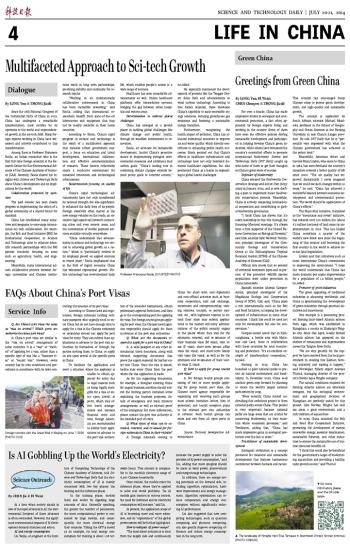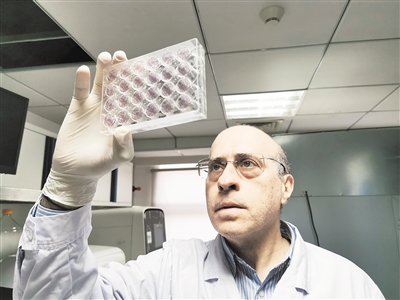
 |
| Professor Francesco Faiola. (COURTESY PHOTO) |
Since the 18th National Congress of the Communist Party of China in 2012, China has undergone a remarkable transformation, most notable by its openness to the world and unprecedented growth in the sci-tech field. Many foreign experts working in China have witnessed and actively contributed to this transformation.
Among them is Professor Francesco Faiola, an Italian researcher who is the first full-time foreign scientist at the Research Center for Eco-Environmental Sciences of the Chinese Academy of Sciences (CAS). Recently, Faiola shared his insights with Science and Technology Daily about China's development and its implications for the world.
Collaboration promoted by openness
The past decade has seen steady progress in implementing the vision of a global community of a shared future for mankind.
China has established many initiatives and programs to encourage international sci-tech collaboration. For example, the Belt and Road Initiative (BRI) for International Cooperation in Science and Technology aims to enhance scientific research partnerships with the BRI partner countries, focusing on areas such as agriculture, health, and engineering.
Meanwhile, many international sci-tech collaborative projects between foreign universities and Chinese institutions result in long-term partnerships, providing stability and continuity for research results.
"Working in an internationally collaborative environment in China has been incredibly rewarding," said Faiola, adding that international researchers benefit from state-of-the-art laboratories and equipment that may not be readily available in their home countries.
According to Faiola, China's rapid progress in science and technology is the result of a multifaceted approach that includes robust government support, a focus on education and talent development, international collaboration and effective commercialization of research. These factors collectively create a conducive environment for sustained innovation and technological advancement.
Modernization focusing on quality of life
China's rapid technological advancements have not only transformed its national strength but also significantly enhanced the daily lives of its people. Foreign observers often marvel at the new energy vehicles on the roads, an extensive high-speed rail network connecting cities and even remote areas, and the convenience of mobile payment services available virtually everywhere.
"China understands that advancements in science and technology are crucial to achieving global growth as a nation," which is "particularly evident in its emphasis placed on applied sciences in recent years." Faiola emphasized that in the field of digital economy, China has witnessed exponential growth. Mobile technology has revolutionized daily life, which enables people's access to a wide range of services.
Healthcare has seen remarkable advancements as well. Online healthcare platforms offer telemedicine services, bridging the gap between urban hospitals and remote areas.
Determination to address global challenges
China has emerged as a pivotal player in tackling global challenges like climate change and public health, through its steadfast commitment to innovation.
Faiola, an advocate for sustainable development, lauded China's proactive stance in implementing stringent environmental measures and ambitious dual carbon goals. "China's leading role in combating climate changes extends beyond policy goals to concrete actions," he added.
He especially mentioned the development of projects like the Tengger Desert Solar Park and advancements in wind turbine technology. According to this Italian scientist, these showcase China's capability to scale renewable energy solutions, reducing greenhouse gas emissions and fostering a sustainable energy transition.
Furthermore, recognizing the health impact of pollution, China has allocated substantial resources to improve air and water quality, which directly contributes to enhancing public health outcomes. Faiola pointed out that China's efforts in healthcare infrastructure and technology have not only bolstered domestic healthcare capabilities, but also positioned China as a leader in responding to global health challenges.







